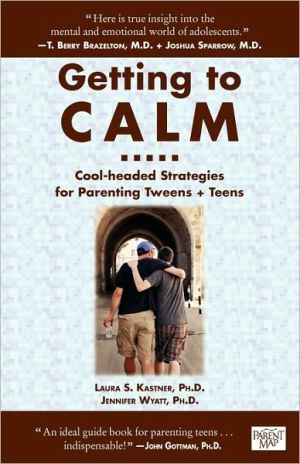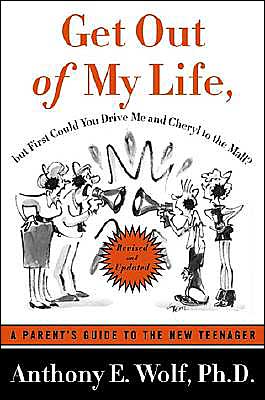Executive Skills in Children and Adolescents: A Practical Guide to Assessment and Intervention
Concise and practitioner friendly, this bestselling guide has helped put executive skills on the map for school&mdashbased clinicians and educators. The book explains how these critical congnitive processes develop and why they play such a key role in children's behavior and school preformance. Provided are step—by—step guidelines and many practical tools to promote executive skill developement by implementing environmental modifications, individualized instruction, coaching, and...
Search in google:
Concise and practitioner friendly, this bestselling guide has helped put executive skills on the map for school-based clinicians and educators. The book explains how these critical cognitive processes develop and why they play such a key role in children's behavior and school performance. Provided are step-by-step guidelines and many practical tools to promote executive skill development by implementing environmental modifications, individualized instruction, coaching, and whole-class interventions. In a large-size format with convenient lay-flat binding, the book includes more than two dozen reproducible assessment tools, checklists, and planning sheets. New to This Edition*Revised and expanded to reflect significant advances in the field.*Chapter on classroom teaching routines that target executive skills during daily work and instruction.*Chapters on integrating executive skills strategies into a response-to-intervention model and managing transitions to a new grade or school. *More reproducibles, one of the book's most popular features.*Increased attention to children who don't have a specific learning disorder but still struggle in school. Doody Review Services Reviewer:Jay P. Goldsmith, MD(Tulane University School of Medicine)Description:This 90-page paperback, written primarily for school psychologists and other educational professionals, describes the normal and abnormal development of high level cognitive functions called "executive skills." This is part of a series of practical interventions for older children and adolescents with emotional, behavioral, or school based functional problems.Purpose:The purpose is to describe problems involving the achievement of executive skills of children and adolescents, notably the abnormalities seen in children with traumatic brain injuries and attention deficit/hyperactivity disorder (ADHD). These are worthy objectives since a significant number of our children suffer from these problems and are often managed pharmacologically by pediatricians, special education teachers, and parents without significant insight as to the roots of these abnormalities and potential nonpharmacologic interventions. This brief book, which is relatively easy to read and understand, meets these objectives even for lay people.Audience:The book is written primarily for school psychologists and other educational professionals such as social workers, guidance counselors, and special educators. However, it is written in such a way as to appeal also to pediatric neurologists, general pediatricians, and child development specialists. Although it may be somewhat difficult reading, the educated parent with a child with ADHD might also find this book informative. Features:It is divided into seven chapters that deal with defining and assessing executive skills in children. The third chapter links assessment to interventions and the final four chapters deal extensively with different types of nonpharmacologic interventions which may help these children. An excellent appendix includes interviews for parents, teachers, and students regarding the assessment of executive skills and different types of planning and checklist sheets that may be used as part of intervention strategies. The intervention chapters for individual children (rather than classroom-wide interventions) are particularly well written and may be extremely helpful to educators as well as parents.Assessment:This is a short book with a strong message especially for those parents and educators who deal with children who have difficulties in achieving executive skills. It is clear, concise, and easy to understand. I am not aware of any comparable book that can be used as a practical guide for parents and educators and that approaches this entire problem without a reliance on pharmacology.
1Overview of Executive Skills12Assessing Executive Skills113Linking Assessment to Intervention254Interventions to Promote Executive Skills345Coaching Students with Executive Skill Deficits676Classroom-Wide Interventions767Applications to Specific Populations83Appendix91References125Index127
\ From the Publisher"This is a rich and practical resource for all those working with children, including educators, therapists, and psychologists. Dawson and Guare demystify the complex and often confusing construct of executive function, citing its neurological basis, but also providing practical insights about how executive dysfunction affects the lives of students of all ages and ability levels. Notably, Dawson and Guare address executive functions from a developmental perspective, acknowledging the dynamic interaction between brain development and the ever-changing societal demands placed on children. The second edition also addresses the issue of primary prevention of executive function problems. Readers will especially appreciate the case examples and recommendations for intervention in the classroom, home, and in therapeutic and coaching settings, as well as the many intervention guides provided in the appendices."--E. Mark Mahone, PhD, ABPP, Director, Neuropsychology, Kennedy Krieger Institute; Department of Psychiatry and Behavioral Sciences, Johns Hopkins University School of Medicine "Executive Skills in Children and Adolescents, Second Edition, is a thoughtful, thorough, and timely resource for education students, practitioners, and school psychologists. This book is the definitive examination of executive functioning in children and adolescents. It is comprehensive in its coverage and highlights the need for assessment of executive skills in the classroom. This is an excellent reference for practitioners designing instructional programs for students who need additional training in executive skills."--Tina Stanton-Chapman, PhD, Department of Curriculum, Instruction, and Special Education, University of Virginia \ "The book represents a welcome step forward in designing and implementing interventions and supports to promote executive function at home and in the classroom. Dawson and Guare integrate up-to-date theory with interventions that take a real-world, problem-solving approach to the full spectrum of executive difficulties, from inhibitory control and emotional regulation to initiation, working memory, planning, and organization. An essential 'how-to' manual."--Peter K. Isquith, PhD, Departments of Psychiatry and Pediatrics, Dartmouth Medical School\ "This invaluable resource has been updated, reorganized, and expanded. The authors blend theory and practice to provide a thorough understanding of why and how to implement interventions for executive skills deficits. The book is formatted for quick, easy reference with concise tables, figures, and forms; the language and content are professional yet very user friendly. Presented are widely applicable intervention strategies that will help facilitate immediate results for school practitioners and teachers."--Stephen G. Hoppin, PsyD, school psychologist, Jefferson County School District, Colorado \ "As a school psychologist, I am always looking for resources that take the latest research and translate it into everyday practice. Dawson and Guare provide practical, specific, and easy-to-use guidelines for intervening with students at every tier of the RTI process. From assessment to intervention to progress monitoring, the book is packed with clear routines and tools to use in consulting with teachers, parents, and administrators. It also has a wealth of information about how to intervene with whole classes, small groups, and individual students. My copy of the first edition is well worn, and I can already tell the second edition will be as well, because of its practical and easily reproducible materials."--Rebecca Branstetter, PhD, school psychologist, Oakland Unified School District, California "This is a comprehensive resource for professionals who work with children of all ages. The authors include helpful and practical tables, checklists, and steps for many general classroom routines, as well as assessments and interventions for specific executive skills. The second edition provides an expanded response-to-intervention framework for applying the instructional techniques with whole classes and individual students."--Patti L. Harrison, PhD, Department of Educational Studies in Psychology, Research Methodology, and Counseling, University of Alabama\ \ \ \ \ \ \ Schooldays Magazine"This is an exceptionally useful book which I highly recommend."--Schooldays Magazine\ \ \ Schooldays Magazine This is an exceptionally useful book which I highly recommend.\ \ \ \ \ \ From The CriticsReviewer: Jay P. Goldsmith, MD(Tulane University School of Medicine)\ Description: This 90-page paperback, written primarily for school psychologists and other educational professionals, describes the normal and abnormal development of high level cognitive functions called "executive skills." This is part of a series of practical interventions for older children and adolescents with emotional, behavioral, or school based functional problems.\ Purpose: The purpose is to describe problems involving the achievement of executive skills of children and adolescents, notably the abnormalities seen in children with traumatic brain injuries and attention deficit/hyperactivity disorder (ADHD). These are worthy objectives since a significant number of our children suffer from these problems and are often managed pharmacologically by pediatricians, special education teachers, and parents without significant insight as to the roots of these abnormalities and potential nonpharmacologic interventions. This brief book, which is relatively easy to read and understand, meets these objectives even for lay people.\ Audience: The book is written primarily for school psychologists and other educational professionals such as social workers, guidance counselors, and special educators. However, it is written in such a way as to appeal also to pediatric neurologists, general pediatricians, and child development specialists. Although it may be somewhat difficult reading, the educated parent with a child with ADHD might also find this book informative. \ Features: It is divided into seven chapters that deal with defining and assessing executive skills in children. The third chapter links assessment to interventions and the final four chapters deal extensively with different types of nonpharmacologic interventions which may help these children. An excellent appendix includes interviews for parents, teachers, and students regarding the assessment of executive skills and different types of planning and checklist sheets that may be used as part of intervention strategies. The intervention chapters for individual children (rather than classroom-wide interventions) are particularly well written and may be extremely helpful to educators as well as parents.\ Assessment: "This is a short book with a strong message especially for those parents and educators who deal with children who have difficulties in achieving executive skills. It is clear, concise, and easy to understand. I am not aware of any comparable book that can be used as a practical guide for parents and educators and that approaches this entire problem without a reliance on pharmacology. "\ \ \ \ \ 3 Stars from Doody\ \








